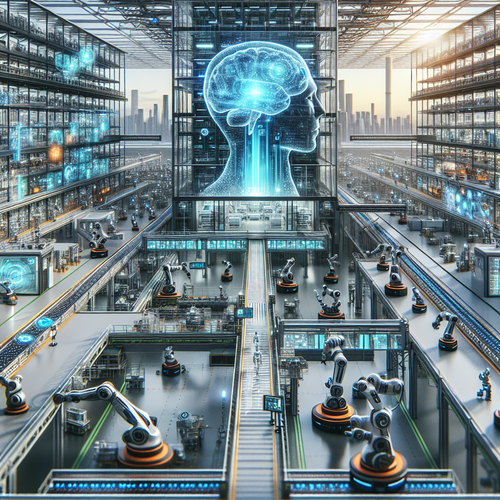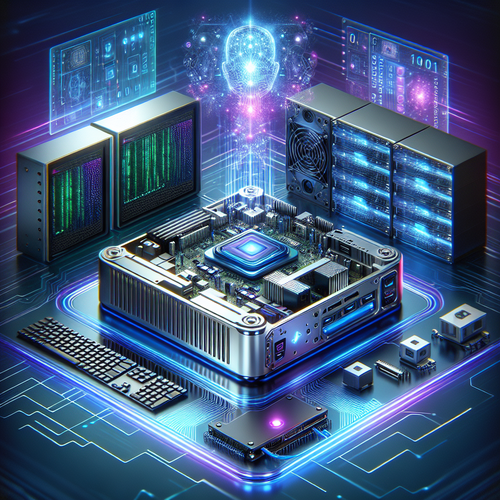
Harnessing the Power of AI in Smart Manufacturing
Harnessing the Power of AI in Smart Manufacturing
The evolution of manufacturing has taken a significant leap forward with the integration of artificial intelligence (AI). In the face of increasing competition and rising costs, manufacturers are turning to AI to enhance efficiency, streamline operations, and reduce waste. This article delves into how AI is shaping smart manufacturing and what the future holds.
Understanding Smart Manufacturing
Smart manufacturing refers to a modern approach that utilizes advanced technologies to improve manufacturing processes. This includes the Internet of Things (IoT), big data analytics, and, importantly, AI. The goal is to create adaptable, efficient, and sustainable manufacturing environments.
AI Technologies in Smart Manufacturing
- Machine Learning: Machine learning algorithms analyze vast data sets to recognize patterns and predict outcomes, allowing manufacturers to make data-driven decisions.
- Predictive Maintenance: AI systems monitor machine performance in real-time and predict failures before they occur, minimizing downtime and maintenance costs.
- Quality Control: AI-powered vision systems can inspect products for defects at a speed and accuracy that surpasses human capabilities.
- Supply Chain Optimization: AI enhances supply chain efficiencies by predicting demand and optimizing inventory levels, leading to reduced costs.
Benefits of AI in Smart Manufacturing
Integrating AI into manufacturing processes comes with numerous advantages:
- Increased Efficiency: AI systems can analyze data and implement changes in real-time, leading to significant improvements in efficiency.
- Cost Reduction: By predicting equipment failures and optimizing resources, companies can save on operational costs.
- Enhanced Flexibility: AI allows for more flexible manufacturing processes, adapting to changes in demand or operational conditions.
Challenges and Considerations
While the benefits of AI in smart manufacturing are compelling, there are also challenges to consider:
- Initial Costs: Implementing AI technology can require a substantial upfront investment.
- Data Security: Increased connectivity can lead to vulnerabilities; therefore, cybersecurity measures must be a priority.
- Skilled Workforce: There is a growing need for workers skilled in AI and machine learning, necessitating investments in training.
Case Studies: Successful AI Integration
Many companies are already reaping the benefits of AI in their manufacturing processes. For instance, General Electric (GE) has implemented AI in their aviation sector, significantly reducing downtime through predictive maintenance. Similarly, Siemens is utilizing AI for quality control, ensuring that every product meets rigorous standards.
Looking Ahead
As technology continues to evolve, the integration of AI in smart manufacturing will only broaden. Companies failing to adopt these technologies risk falling behind their competitors. For more insights on how AI is impacting various sectors, check out our post on Exploring the Intersection of AI and Climate Action.
Conclusion
The future of manufacturing lies in smart solutions powered by AI. Embracing this technology presents companies with the opportunity to innovate, optimize processes, and stay competitive in a rapidly changing landscape.













